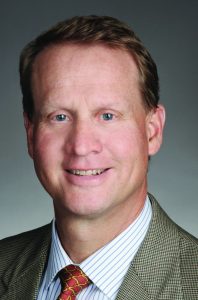HOME | ABOUT US | MEDIA KIT | CONTACT US | INQUIRE
HOME | ABOUT US | MEDIA KIT | CONTACT US | INQUIRE
Q: You have been engaged in significantly diverse entrepreneurial efforts, from entertainment-type real estate to co-working to green energy. How does being in Kansas City, the entrepreneurial ecosystem here, help support those kinds of efforts?

A: Kansas City is a big enough business and financial node that it has investment capital and professional support services that support a wide variety of business activity. [We have] tended to be at the cutting edge of emerging things. It’s a little difficult, I have to confess, because of the highly conservative nature of the business community, but it’s getting better. It used to be no one talked about early-stage investment, but it’s now more popular and there is more tracking of it. It’s above average but it’s not the best and we still have a little way to go, but it has become more of the landscape. I’m pretty excited about it.
Q: Are there any missing pieces that could make that infrastructure more effective for startups?
A: I think we’ve begun to build some of the infrastructure that could be very supportive. You have to celebrate the little victories – I think more of that is the best thing we can do to build momentum and a positive outlook, because they feed on themselves. [I’d like] to still see Kansas City’s positive attitude in this greater level of uncertainty and see it really leapfrog ahead.
Q: Can you give us a status report on how things are going with Enfinite Capital?
A: Things are going OK. Projects at Enfinite Capital have not really been affected by COVID-19. At the same time, two investors on two different projects withdrew due to COVID-19. There is a lot of uncertainty about how things will go and how things will turn out. Things are going well, but there has been some disruption. Marginally, things are carrying on.
Q: With Plexpod up and running for a few years now, has the concept proven itself?
A: I think it has proven itself. It’s past the break-even point and profitable. We have four locations and have had a little setback with COVID-19, but I believe the concept has been reinforced in a positive way by it in the long run. If you have the infrastructure in place, people realize this is an equation that works well and can be a part of the landscape in how America works in the long run. It has been a catalyst for the broader population to understand how this works and how it can work.
Q: Did the fallout from the WeWorks problems impact the co-working space concept?
A: For sure, yes. We created a lot of interest and enthusiasm about the category, but at the same time it created a lot of confusion. They did not understand how they could keep units as often as they could, and it developed a lot of awareness and wariness–it’s a very interesting plus and minus. It was quite a roller coaster for the industry. They are the big guy in the industry, and they have built a lot of awareness for the category but also turbulence and questions. People do not understand WeWorks; it’s a mixed bag.